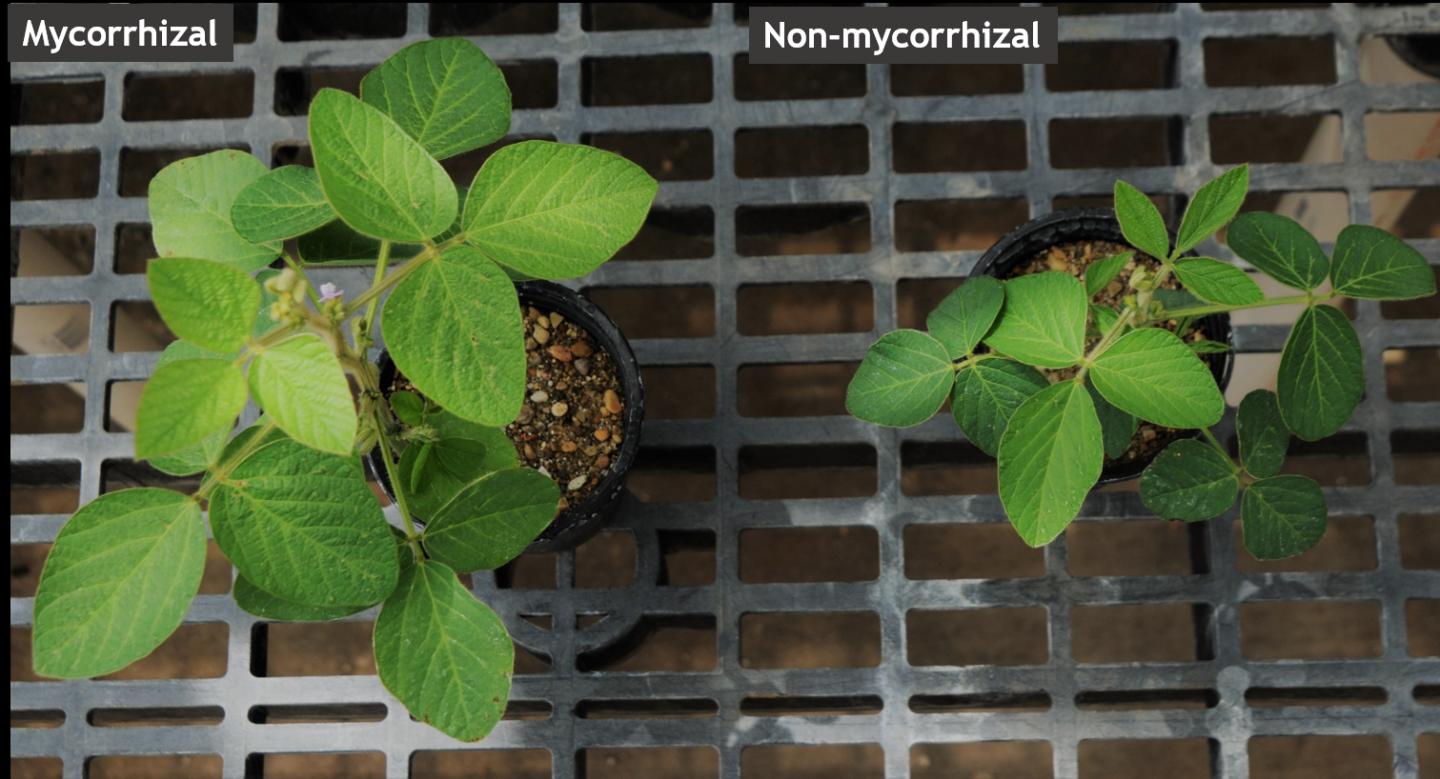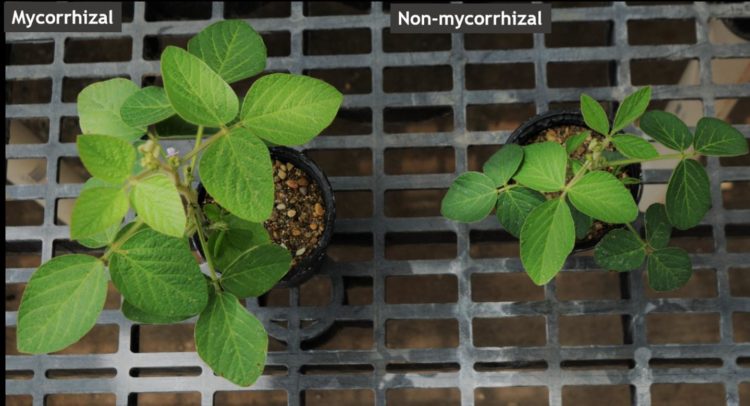
Credit: Michelle Pawlowski, University of Illinois
URBANA, Ill. – Like most plants, soybeans pair up with soil fungi in a symbiotic mycorrhizal relationship. In exchange for a bit of sugar, the fungus acts as an extension of the root system to pull in more phosphorus, nitrogen, micronutrients, and water than the plant could on its own.
Mycorrhizal fungi occur naturally in soil and are commercially available as soil inoculants, but new research from the University of Illinois suggests not all soybean genotypes respond the same way to their mycorrhizal relationships.
“In our study, root colonization by one mycorrhizal species differed significantly among genotypes and ranged from 11 to 70%,” says Michelle Pawlowski, postdoctoral fellow in the Department of Crop Sciences at Illinois and co-author on a new study in Theoretical and Applied Genetics.
To arrive at that finding, Pawlowski grew 350 diverse soybean genotypes in pots filled with spores of a common mycorrhizal fungus. After six weeks, she looked at the roots under a microscope to evaluate the level of colonization.
“It was a little bit of a gamble because we didn’t know much about soybean’s relationship with mycorrhizae and did not know if differences in colonization among the soybean genotypes would occur. So when we screened the soybean genotypes and found differences, it was a big relief,” Pawlowski says. “That meant there was a potential to find genetic differences, too.”
The process of root colonization starts before fungal spores even germinate in the soil. Roots exude chemicals, triggering spores to germinate and grow toward the root. Once the fungus makes contact, there’s a complex cascade of reactions in the plant that prevents the usual defensive attack against invading pathogens. Instead, the plant allows the fungus to enter and set up shop inside the root, where it creates tiny tree-like structures known as arbuscules; these are where the fungus and plant trade sugar and nutrients.
The study suggests there is a genetic component to root colonization rates in soybean. To find it, Pawlowski compared the genomes of the 350 genotypes and honed in on six genomic regions associated with differing levels of colonization in soybean.
“We were able to use all the information we have on the soybean genome and gene expression to find possible causal genes within these six regions,” she says.
According to the study, the genes control chemical signals and pathways that call fungus toward roots, allow the plant to recognize mycorrhizal fungus as a “good guy,” help build arbuscules, and more. “For almost every step in the colonization process, we were finding related genes within those regions,” Pawlowski says.
Knowing which genes control root colonization could lead breeders to develop soybean cultivars with a higher affinity for mycorrhizal fungus, which could mean improved nutrient uptake, drought tolerance, and disease resistance.
“This environmentally friendly approach to improving soybean production may also help reduce the overuse of fertilizers and pesticides and promote more holistic crop production systems,” says Glen Hartman, plant pathologist in the Department of Crop Sciences and crop pathologist for USDA-ARS.
###
The article, “Whole-genome resequencing identifies quantitative trait loci associated with mycorrhizal colonization of soybean,” is published in Theoretical and Applied Genetics [DOI: 10.1007/s00122-019-03471-5]. Authors include Michelle Pawlowski, Tri Vuong, Babu Valliyodan, Henry Nguyen, and Glen Hartman. Funding was obtained from the United Soybean Board and the USDA Agricultural Research Service.
The Department of Crop Sciences is in the College of Agricultural, Consumer and Environmental Sciences at the University of Illinois.
Media Contact
Lauren Quinn
[email protected]
217-300-2435
Original Source
https:/
Related Journal Article
http://dx.





